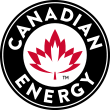DC to DC Converter Opportunities

These units are used in applications where the vehicle main battery and/or alternator voltage is different than the required accessory voltage. The most common DC to DC converters and equalizers typically step 24 volts down to 12 volts or 12 volts up to 24 volts and are available in a range of different amperages. Most units are available in a converter and equalizer option, the rule of thumb is if you are charging batteries with unit then you want to use an equalizer, if it is strickly for running loads than you use a converter. Here are 3 of the most common applications where you will sell DC to DC converters and equalizers;
Marine applications in larger boats that have electric bow and stern thrusters. Thrusters are typically powered off 24 volt battery banks but the main engine, starting and charging systems are generally 12 volt, in this case you would use a 12 to 24 volt equalizer so that the 24 volt battery bank is charged off the 12 volt main battery and alternator.
Transit Buses - every transit bus and many highway coach buses have DC to DC converters to operate accessories. Most of these buses have 24 volt start & charging systems but the fare meters, sign boards, interior lights, fans, etc operate off 12 volt, this requires a 24 to 12 volt usually 60-100 amp converter or equalizer to operate all the loads.
Off Road Equipment - most CAT, Komatsu, Hitachi, JCB, Doosan , etc wheel loaders and crawler tractors also have 24 volt start & charging systems, this means that if they want to install 2 ways radios, stereos, auxiallary lights, etc they should use a DC to DC converter to power the devices.
Some of you astute folks might say, why not just centre tap off one of the batteries to give you 12 volts in a 24 volt system? Thats a good question! Running 12 volt loads from 1 battery on a 24 volt system can cause a battery voltage imbalance, this might cause the alternator to overcharge the battery with no load on it, or if the load is left on, it may discharge one battery to the point where the voltage is too low to start the engine.
The next time you are visiting your local transit company or HD equip dealer ask them where they purchase their converters, I'll bet nobody has ever asked them that question before!
